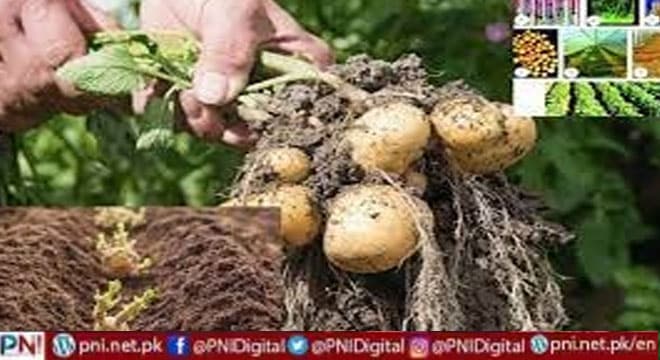ISLAMABAD, Mar 27 (APP): The Pakistan Agriculture Research Council (PARC) would produce over 150,000 tonnes of high-quality fourth-generation seed potatoes to ensure the supply of virus-free seed to local growers to enhance per-acre output in the country.
Accordingly, the PARC in collaboration with Korean Program on International Agriculture (KOPIA) will also establish 35 aeroponic greenhouses to produce first-generation seed potato tubers for large-scale cultivation to produce virus-free potato seed.
Currently, Pakistan and Korea are working jointly on seed potato production through aeroponic technology and more than 30 per cent of potato seed requirements could be met from the tissue culture labs at National Agriculture Research Center (NARC), a PARC official told APP on Monday.
He said the 2nd crop was ready for harvesting at the NARC, adding the PARC and KOPIA were collaborating on a project for Aeroponic Potato Seed Production System, with the goal of achieving higher productivity, reducing post-harvest losses, promoting farm-level processing, developing human resources, and creating significant job opportunities.
He informed that potato was one of the major cash crops of the country and during 2022, it was cultivated over an area of 313,000 hectares, adding that the domestic output of potatoes during last season was recorded at 7,937,000 tonnes.
He said the potato seed, mainly imported from the Netherlands, was not only expensive but also of the fifth generation or above.
Pakistan’s annual import of potato seed was around 12,000 to 15,000 tonnes, which costs around Rs 3 billion. The local production of seed through this technology will help minimize this import bill.
He also mentioned that over 30 per cent of the seed requirement could be met from tissue culture labs already operating at the NARC, declaring the private sector involvement in seed production was “crucial” due to its potential for business growth.
Follow the PNI Facebook page for the latest news and updates.








